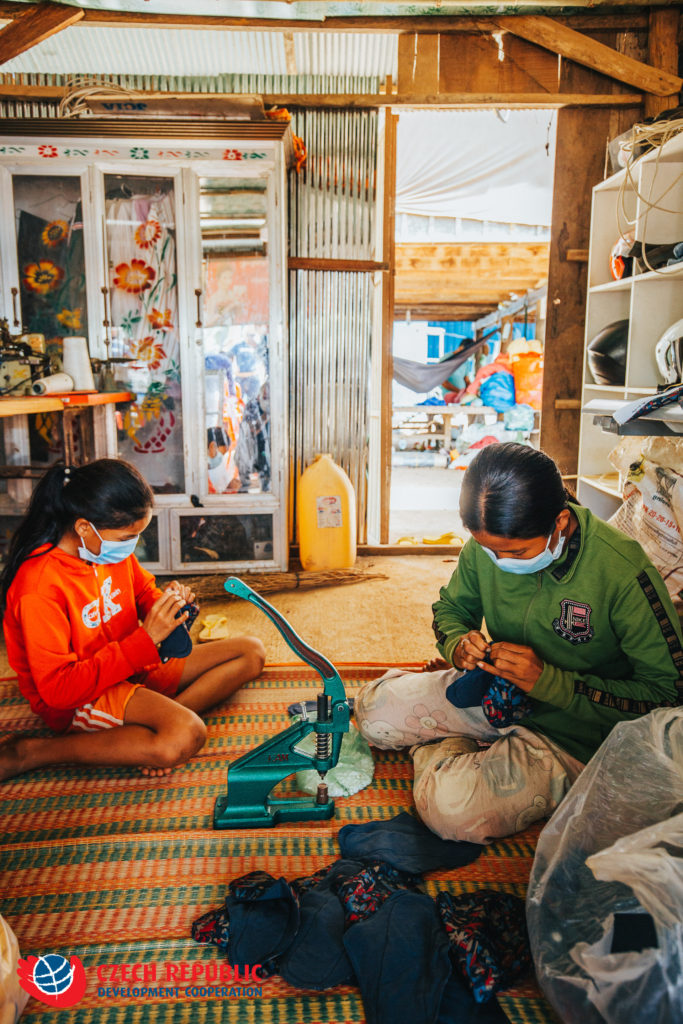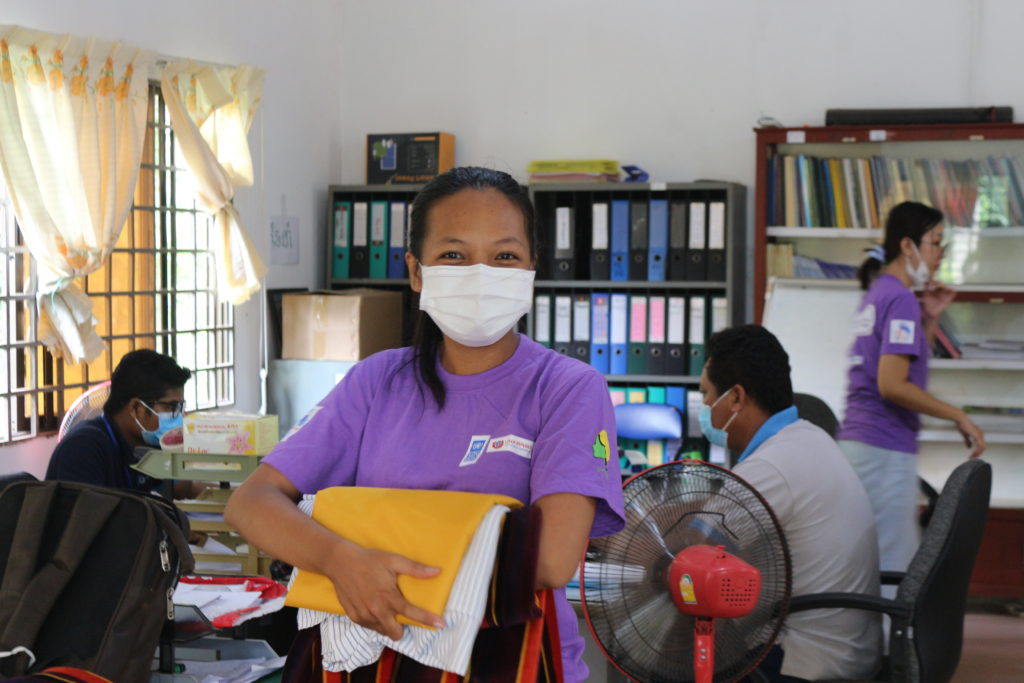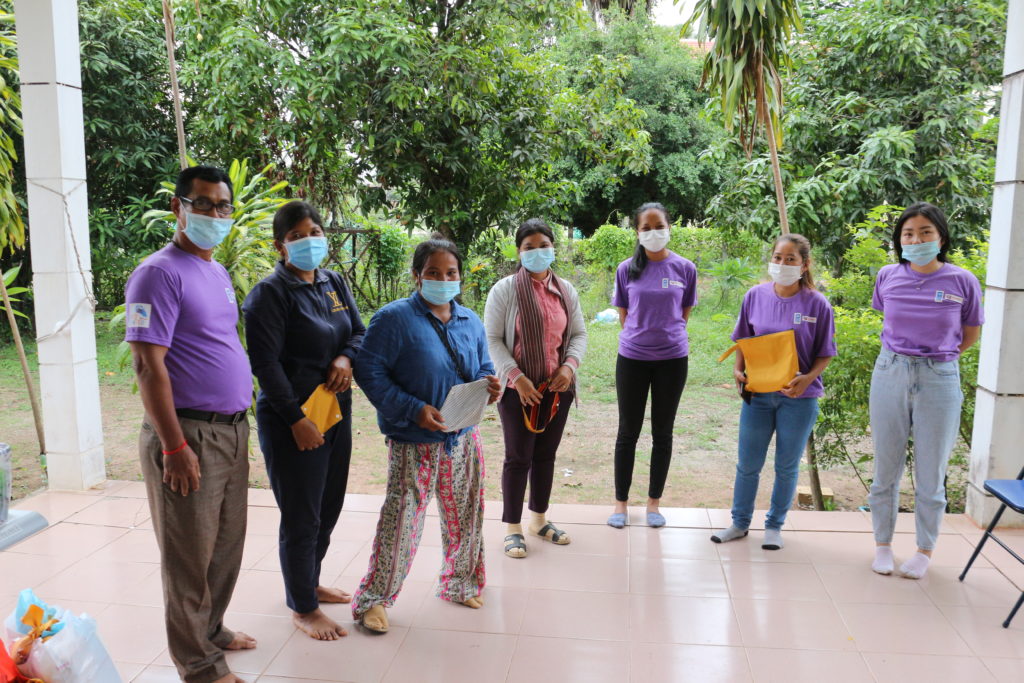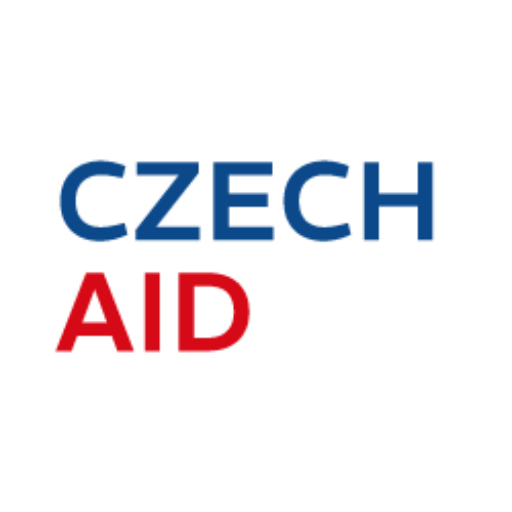Diakonie ČCE won the Czech SDG Award 2021
Congratulations to Diakonie ČCE for winning the Czech SDG Award with the Challenge Fund project: Microbusiness and Innovation for Women Menstrual Health and Empowerment in Cambodia!
What is happening? In Cambodia’s Kampong Chhnang Province, period shaming still exists and local women face obstacles in their daily lives both due to the lack of affordable menstrual products as well as due to the lack of awareness at the institutional and private level. This situation is called Period Poverty and Diakonie ČCE seeks to change it.
Period poverty
The topic of women’s menstrual health is still a challenge in many developing countries and rural areas. In Cambodia’s Kampong Chhnang Province, period shaming is still persistent among many and the topic of menstrual health in general remains a taboo for the society. As a result, local women face obstacles in their daily lives both due to the lack of affordable menstrual products as well as due to the lack of awareness at the institutional and private level. The current situation is generally referred to as period poverty.
On the other hand, the production and utilization of alternative menstruation products such as reusable panties, pads, sponges and cups has been booming in the past years. In the Czech Republic, the leading company in market for reusable hygiene products has agreed to provide their know-how and experience in reusable pads making, by working with the Diaconia NGO through UNDP’s 2020 Challenge Fund. With the funding obtained by the Challenge Fund, and in cooperation with Cambodian NGO Life with Dignity (LWD) the triangular project facilitated on-site training of several local Cambodian tailor businesses in making such menstrual pads as well as several awareness building activities.
Diaconia’s Challenge Fund project
✔️ Analysis of Cambodian situation has shown that menstruation pads are, for various hygienic and cultural reasons, the optimal solution for the local context.
✔️ Diakonie organized training for local female tailors.
✔️ By now, 6 000 pads and 1500 hygiene kits were ordered from trained female tailor businesses and have been distributed to local women as a form of marketing campaign during awareness raising sessions.
✔️ The purpose of these sessions is twofold. They provide instruction of the reusable pads and raise awareness about menstrual hygiene.
The solution focused on multiple outcomes. Following a thorough methodology, the Czech implementors first analysed Cambodian and regional situation and concluded that menstruation pads are, for various hygienic and cultural reasons, the optimal solution for the local context. Firstly, over 3,600 pads and hygiene kits were ordered and LWD distributed to local women for test and trial. At the same time, awareness campaign and capacity building for future pad producers took place.
The solution complemented several SGDs, namely the SDG3 Good Health and Well-Being, SDG 8 Decent Work and Economic Growth, SDG9 Industry, Innovation and Infrastructure and SDG10 Reduced Inequalities. There are multiple ways how this solution contributed to their achievement. On one hand, the reusable pads offer a more affordable solution than one-time use products, which some locals simply could not afford. Furthermore, for many women, this new option made normal daily functioning possible as they previously preferred to stay at home during their period, due to both social and financial reasons. Ultimately, the use of reusable pads is more friendly to the environment while it offers a locally based source of income for women entrepreneurs to whom this may help with a Covid-19 economic recovery.

Summer 2021 
Summer 2021
The implemented project, which was managed from UNDP’s Istanbul Regional Hub, showcases the potential of triangular cooperation. The Czech NGO Diaconia was able to partner up with a private entity with a unique know-how and connected them with local Cambodian NGO Life With Dignity. Together they facilitated training for local Cambodian micro-businesses. To support this solution, the UNDP’s Challenge Fund offered a flexible instrument for improving situation in LDCs by financially supporting a cost-effective innovative solution coming from the private sector. Furthermore, the long-term sustainability of the project is improved by aligning its implementation to a larger, bilateral WASH intervention of the Czech Republic in Cambodia. The implementer Diaconia supports women menstrual health also in Bangladesh’s Cox’s Bazaar. While the refugee camp conditions do not yet allow for more than a distribution humanitarian goods, Diaconia seeks ways to introduce similar innovative model, based on improving women’s well-being as well as providing economic opportunities.

Training by Diakonie ČCE and Life with Dignity 
Training by Diakonie ČCE and Life with Dignity 
Training by Diakonie ČCE and Life with Dignity 
Training by Diakonie ČCE and Life with Dignity
The solution holds a large scale-up potential. Clearly, the topic of menstrual health is still largely influenced by shared knowledge and includes many myths. To improve the acceptance and sustainability of the implemented solution in Cambodia, it was important to fully grasp the local attitude towards various sanitary products. The awareness raising campaign and intense consultation with local women who shared their views on the topic helped this effort. For this reason, reusable pads were chosen as the most cost-effective as well as the most likely to be accepted solution. Now when the production know-how is in place, the project has a large potential for both multilateral and grassroot scale-up. Ultimately, the capstone of the solution is the continuous awareness raising effort and encouragement for local women, to rethink their menstrual hygiene and try the reusable pads.
This project is implemented by UNDP in Europe and Central Asia with financial support from the Ministry of Foreign Affairs of the Czech Republic.


